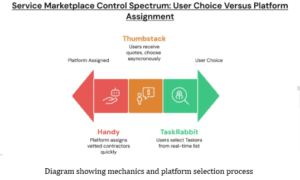In today’s digital age, mobile applications have become an integral part of our lives. Whether it’s for communication, entertainment, or productivity, mobile apps have revolutionized the way we interact with technology. Behind every successful mobile app lies a dedicated team of developers who specialize in mobile application development. In this article, we will explore the evolution of mobile application development and the advancements that have shaped the industry.
The Rise of Mobile Applications
With the advent of smartphones, the demand for mobile applications skyrocketed. People were no longer limited to basic phone functionalities but had the power of a computer in the palm of their hands. This led to the emergence of app stores, where users could download and install various applications to enhance their mobile experience.
The Birth of Mobile Application Development
In the early days of mobile application development, developers had to create separate applications for different platforms, such as iOS and Android. This meant that businesses had to invest in multiple development teams to cater to a broader user base. However, this approach was not sustainable in the long run.
The Introduction of Cross-Platform Development
To address the challenges posed by developing for multiple platforms, cross-platform development frameworks were introduced. These frameworks allowed developers to write code once and deploy it across multiple platforms, saving time and resources. One such popular framework is Xamarin, which uses C# to develop native applications for iOS, Android, and Windows.
The Emergence of Swift Application Development
In 2014, Apple introduced Swift Application Development, a programming language specifically designed for iOS, macOS, watchOS, and tvOS app development. Swift offered developers a more modern and efficient way to build applications for Apple’s ecosystem. With its user-friendly syntax and powerful features, Swift quickly gained popularity among developers.
The Rise of Kotlin Application Development
In 2017, Google announced Kotlin as an official programming language for Android development, alongside Java. Kotlin offered developers a more concise and expressive language, reducing the amount of boilerplate code required. Its seamless interoperability with Java made it an attractive choice for Android developers worldwide.
The Power of Kotlin
Kotlin – the name itself sounds pretty cool, right? Well, it’s not just the name that’s cool, but the language itself is pretty amazing too. Let’s dive into the fascinating world of Kotlin and explore why it packs such a punch in the world of mobile app development.
History of Kotlin
Kotlin was developed by JetBrains, a leading software development company. It was officially released in 2011, but gained popularity in 2017 when Google announced its official support for Kotlin as a first-class language for Android app development. Since then, Kotlin has skyrocketed in popularity among developers.
Key Features of Kotlin
Kotlin boasts some impressive features that make it a developer’s dream. One of the standout features of Kotlin is its interoperability with existing Java code. This means developers can seamlessly integrate Kotlin into their existing Java projects without any hassle. Kotlin also offers null safety, which helps in reducing the chances of null pointer exceptions, a common issue in Java. Additionally, Kotlin has support for lambdas, coroutines, extension functions, and many other modern language features, making it a powerful language for building complex and robust applications.
Benefits of Kotlin
Now, let’s talk about the sweet perks of using Kotlin. First and foremost, Kotlin is concise and expressive. It significantly reduces boilerplate code, making development faster and more efficient. It also has great IDE support, as JetBrains, the creators of Kotlin, specialize in developing powerful IDEs like IntelliJ IDEA. With Kotlin, you can enjoy smart code completion, refactoring tools, and instant error detection, making your coding experience a breeze.
The Shift Towards Cloud-Based Development
With the increasing popularity of cloud computing, mobile application development has also embraced cloud-based solutions. Cloud-based development allows developers to leverage the power of cloud services for storage, data processing, and backend infrastructure. This enables them to focus more on app functionality and user experience without worrying about managing complex server infrastructure.
The Impact of Artificial Intelligence and Machine Learning
Artificial Intelligence (AI) and Machine Learning (ML) have made significant advancements in recent years, and they have also found their way into mobile application development. AI and ML technologies enable developers to create smarter and more personalized applications. From virtual assistants to image recognition, AI and ML are transforming the mobile app landscape.
The Importance of User Experience
In today’s competitive app market, user experience plays a crucial role in the success of a mobile application. Developers need to prioritize intuitive and seamless user interfaces, smooth navigation, and fast performance. By focusing on user experience, developers can create apps that engage and retain users, leading to higher user satisfaction and increased app downloads.
The Future of Mobile Application Development
As technology continues to evolve, so does mobile application development. The future of mobile app development holds exciting possibilities, such as the integration of Internet of Things (IoT) devices, augmented reality (AR), and virtual reality (VR). These advancements will open up new avenues for developers to create innovative and immersive experiences for users.
Conclusion
Mobile application development has come a long way since its inception. From the rise of mobile apps to the introduction of cross-platform development, the industry has constantly evolved to meet the needs of users and businesses. With the emergence of Swift and Kotlin application development, developers now have more powerful tools at their disposal. As we look towards the future, mobile app development will continue to push boundaries and shape the way we interact with technology.



































